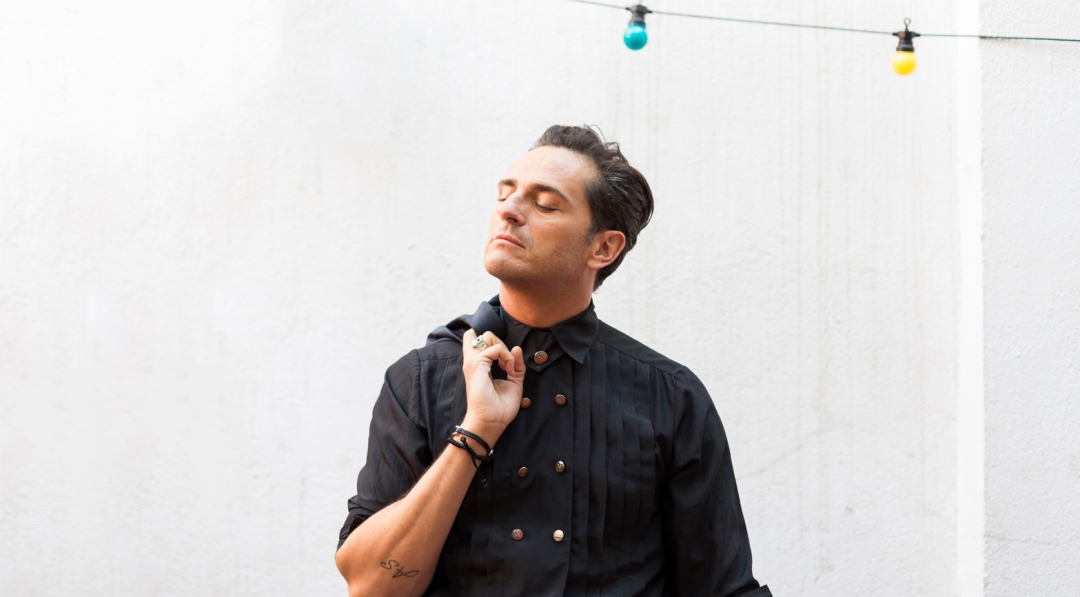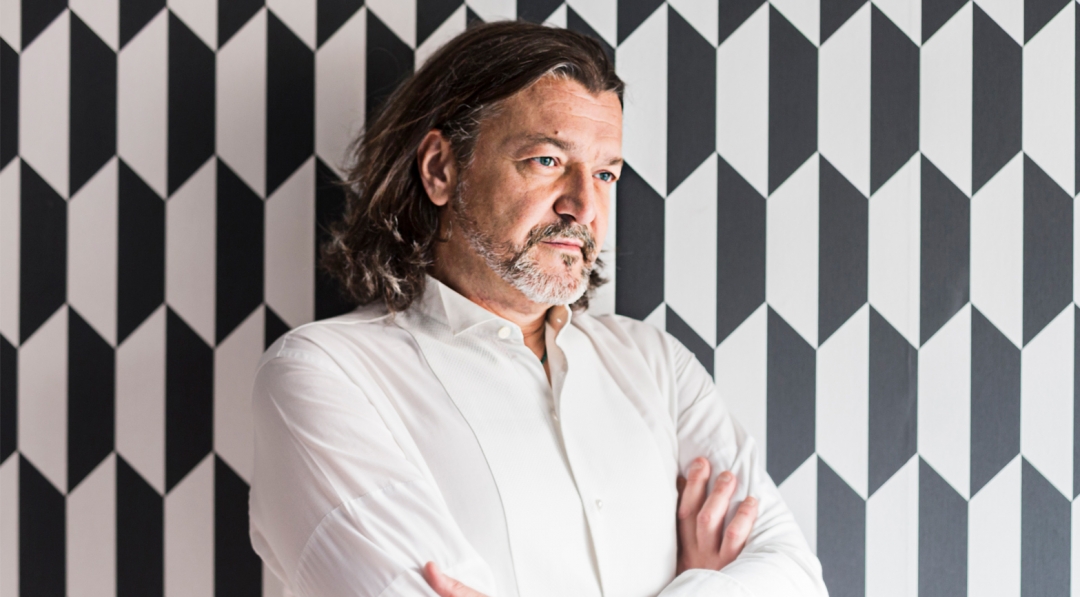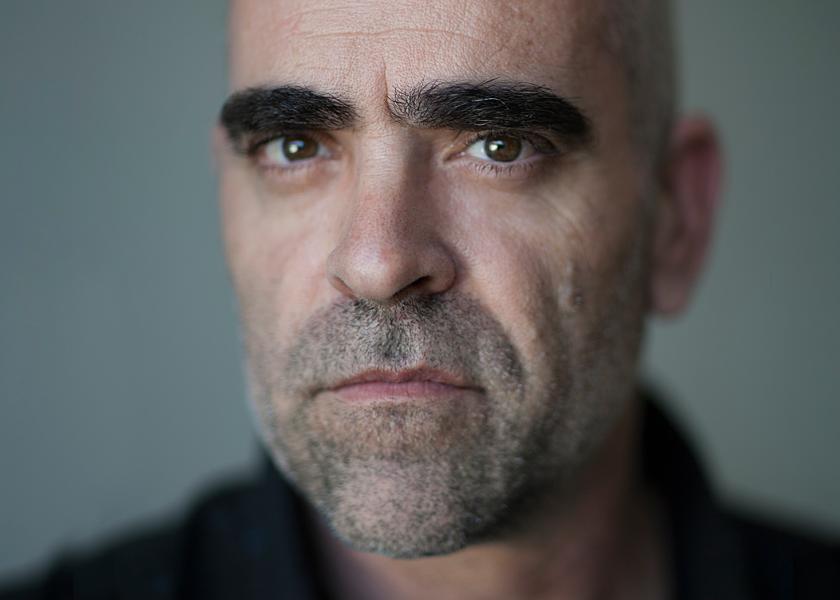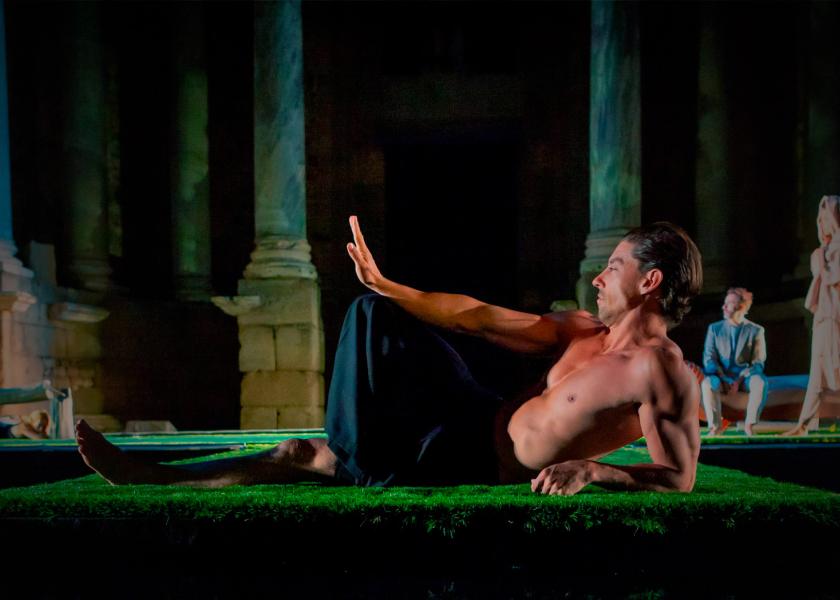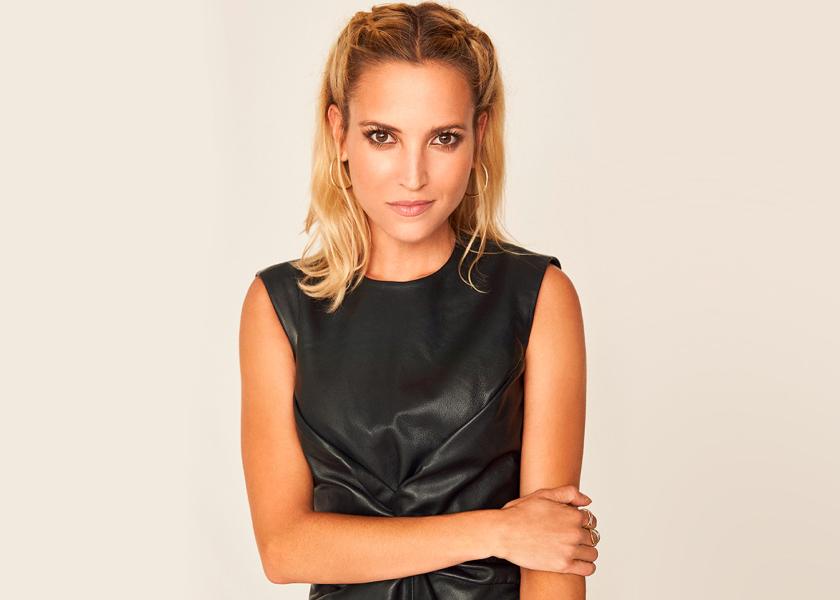Mastodonte
The Musical Reinvention of Asier Etxeandia
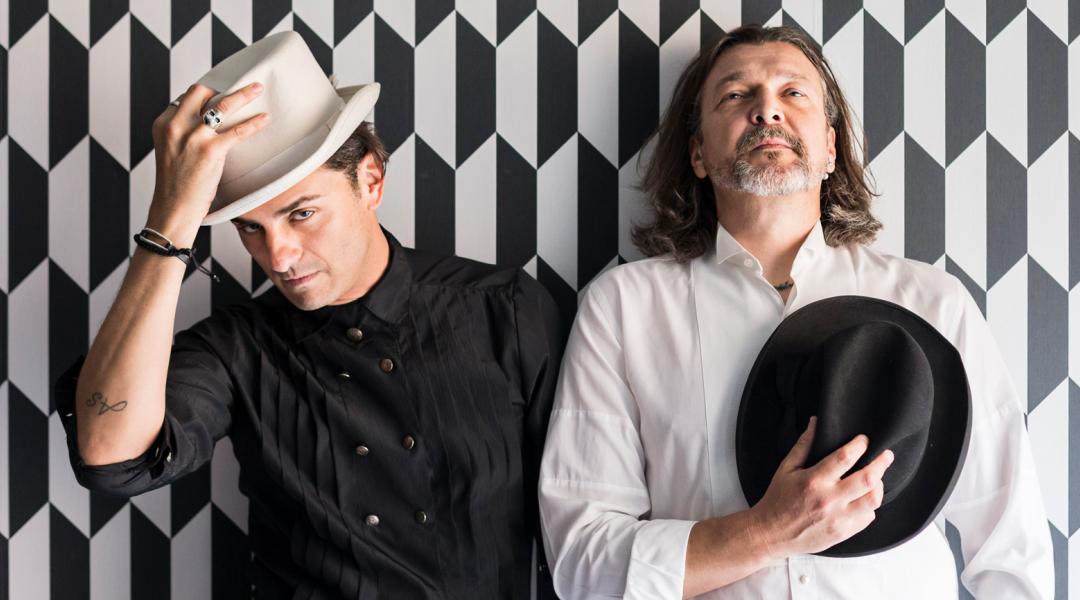
Asier Etxeandia’s star is rising fast, thanks to his role in the new Almodóvar movie, 'Pain and Glory'. This September will see the premiere of 'The (Silent) War' (Spanish title: 'Sordo'), the big-screen adaptation of David Muñoz and Rayco Pulido’s acclaimed comic, which he plays the lead in, and on top of that he continues on tour playing the songs from the first album by Mastodonte, a musical project he shares with multi-instrumentalist Erico Bárbaro (Naples, 1969).
A comic. This story begins with a comic published in 2008. Work by David Muñoz —writer of adult comics, series, and films like The Devil’s Backbone by Guillermo del Toro, to name but one—and illustrator Rayco Pulido—winner of the National Comic Award 2017—. Sordo (Spanish for “deaf”) is the story of Anselmo, a partisan in 1942 post-war Spain, who starts a guerrilla war and, when preparing to blow up a bridge, becomes deaf in both ears after the bomb detonates. Deprived of his hearing sense and with his ability to understand the world limited, the protagonist unleashes his inner animal. Now, his priorities are to flee, hunt, look for shelter and, ultimately, survive.
Like so many times before, the comic ended up being adapted for the big screen, thanks to the particular commitment of emerging filmmaker Alfonso Cortés-Cavanillas. Asier Etxeandia (Bilbao, 1975) is brilliant as the main character. We meet him and Bárbaro, his musical partner, during a pause in Mastodonte’s Transfiguración tour to chat about music, passion, and talent. And, of course, cinema.
Besides the leading role in Sordo, you have written the song that is played during the credits with your band Mastodonte. Happy?
Asier Etxeandia: A lot. The song is titled Simplemente perfecto ('Simply Perfect') and its a perfect fit. It’s another way to reach people. It all adds up.
How did you end up playing Anselmo?
Asier Etxeandia: I’ve actually been part of this project ever since Alfonso Cortés-Cavanillas came up with the idea of adapting the comic and making a movie out of it. If Alfonso weren’t my friend, I would never have landed the role, so I should say that I’ve been very lucky. My involvement has been huge.
The (Silent) War is closer to Tarantino’s action cinema than any other Spanish movie. Has shooting it been difficult?
Asier Etxeandia: It’s been really hard, and I have to confess that I had a terrible time. I don’t know how, but this role gave me a burst of terrible panic, which was axiomatic, because it’s the same state of mind Anselmo is in, so I just went with that fear. Anselmo’s character is one of the most important ones in my career, and the one I have learned from the most. The (Silent) War is many things at once and they’re all good: it’s classic war cinema, epic, high-speed and, above all, it’s about characters and emotions.
What was the filming like?
Asier Etxeandia: it was a real battle during two months in autumn—very cold and with many nights spent out in the open. It’s been really hard.
How do a man from Bilbao and another one from Naples end up forming a band in Madrid?
Asier Etxeandia: We met during El Intérprete, my previous show, where we worked together for five years. Enrico was the bass player, and he always transmitted so much peace and security. His energy, silent and elegant, makes me feel protected. But, most of all, we share countless musical tastes and references. Mastodonte was born kind of by accident, during the soundchecks. We discovered that we had the ability to create new things together.
Enrico, how did you end up in Spain?
Enrico Bárbaro: My friend Pino Rovereto, who is a drummer, suggested we work in some musicals in Madrid for some time, and I just stayed.
Your homonymous first album is an experimental exercise oscillating between eclectic electronica, pop and epic rock. What were you looking for?
Asier Etxeandia: This album has taken us two years to make. We practically moved in together. The idea was to make the record the sum of our personalities.
Enrico Bárbaro: We both like concept albums, but with a powerful sound we struggled a lot to find. We got lost several times and then found each other again, and, slowly, we progressed. That’s how we came up with the name Mastodonte, because at times the project turned into a monster that devoured us.
What do you want to achieve?
Asier Etxeandia: Our main identity is precisely the change of identity. I think that’s the future of everything. We don’t care about tribes—they take the edges off everything and limit your personality. Our music is made up of a lot of different styles, which is why people find it so hard to classify us. We know that it’s a tough record to get, that it requires effort, but if you really listen to it, if you really make an effort, you’ll understand the trip we want to take you on.
Does the actor help the singer?
Enrico Bárbaro: Asier is a complete artist who feels comfortable in many different artistic disciplines. He has a very own way of writing lyrics, he knows how to sing and move like nobody else. When we’re playing live, the limelight is all his.
Asier Etxeandia: The album contains puzzles, tiny secrets, which you understand when you see us play live. We like people to dance, jump, and get excited. That’s the idea.
Is playing live of vital importance to you?
Asier Etxeandia: Yes, it’s the most important thing. An artist who’s not generous, who isn’t entirely dedicated, is useless. I use the energy of the public and return it to them threefold. In the end everything becomes a kind of spiritual ceremony, a great love ritual.
Are you happy to finally be a full-fledged “Almodóvar man”?
Asier Etxeandia: I don’t know if you know, but this is actually my second movie with Pedro. The first was Broken Embraces, which I had a tiny role in. Except, a few days before the premiere they called me from [Almodóvar’s production company] El Deseo to tell me that my scene had been cut, and not because I wasn’t marvellous in it (laughs), but because the action was explained at a different time in the movie. The truth is that now, with Pain and Glory, I’ve noticed my profile is much higher—for example, when we went to Cannes for the presentation: it was amazing. The most exciting thing about this all is that when you work for Almodóvar, you know you’re in the hands of a unique filmmaker, someone who will go down in history.
